We are told this is the golden age of television. That we live in a bold new world where high-powered dramas pursue long-form stories with feature film-like production qualities. It is a rather tiresome platitude. Aside from an obvious vanity that strokes the ego of the producers (and to a lesser extent, the presumably discerning consumers), this line reflects new ways in which television is now delivered, consumed, and covered in the media. But it also presents a fallacy because so many of the features of these shows are long-established and the demeaning of older eras of television is ultimately unwarranted.
The term sometimes thrown around to refer to this type of TV is ‘prestige drama’, which seems to have more traction as a phrase in America than on this side of the pond. You know the shows this refers to. Shows with overarching plots primarily produced by American cable channels and streaming services, often with big names attached. They are feted for dramatic and thematic complexity. The type of shows they cover has diversified somewhat from the beginnings of this trend. The early tradition of (often violent) morally grey anti-heroes striving to define and assert their patriarchal roles in changing times has abated a touch. Now we get a few more ensemble pieces and the odd show configured around a female protagonist, though you won’t struggle to find examples of dour conflicted men.
Does our binge-watching these shows mean they are new or different?
The first question is whether the format of these shows is a radical departure from what came before. The conventional wisdom is that with the rise of subscription channels, box sets and eventually streaming services, television can cater to audiences desiring longer stories. There’s no need for producers to be concerned that audience members will miss an episode and then stop watching because the content is so readily available, hence large-scale narratives can be established. Furthermore, this type of television has galvanised and facilitated the habit of binge-watching. We increasingly don’t view these stories as discrete episodes but as 5-10 hour (or more) blocks of continuous narrative.
Although it is true to say that the prominence of these shows has exploded in recent years, and new behavioural habits have blossomed, I do have to take exception to this assertion. That these shows represent a radical departure from what came before is clearly false. For all our habits of bingeing, these shows are essentially episodic dramas with overarching plots. Aside from the obvious continuity with soap operas (usually disqualified from comparison by virtue of being too formulaic and a perceived lack of artistic merit), the long-form television drama has existed for some time.
Long-form drama has been around longer than the spate of cable and streaming shows
Convention holds that this era was birthed by The Sopranos and The Wire (though the latter never got much ratings traction in the US despite its critical success). Firstly, this ignores the groove created by HBOs first long-form drama, the brutal prison saga Oz, but also a collection of shows doing this earlier in the 90s. Twin Peaks, now revived in this new era, is a key example, alongside ER, Star Trek: Deep Space Nine, Babylon 5 and The X-Files. There were even bold attempts happening in children’s animation on this front long before Tony Soprano burst onto the scene. The uninitiated might not be aware of the overarching stories told by DuckTales and Gargoyles (the latter getting particularly involved).
This is not a new observation. Giving the James MacTaggart lecture at the Edinburgh International Film Festival in 2015, Armando Iannucci put it ever so aptly:
Brash new entities such as Amazon and Netflix have emerged, bringing streaming digital pictures: a telecommunicated sequence of visual data. Or TE-LE-VISION, if you will, which immerse us in dynamic new forms of storytelling such as the one-hour drama and provide us with revolutionary new stories such as House of Cards.
The assertion that these networks have revolutionised the format of television is bunk. They have pursued it to great success, and it makes up a much higher proportion of our viewing habits, that is true. But the idea that this form has only recently been pioneered is false. I have largely cited examples from the 90s but depending on what you count as long-form storytelling, the tradition dates back far further. The contrast is made against purely episodic shows, so examples like 1985’s Edge of Darkness which ran for six episodes but featured a singular, crafted and continuous story surely count too, and examples range back further.
There is a contradiction in these shows being so original and so familiar
Iannucci’s comment is also poignant for debunking the other strand of this fallacy: that aside from the format, this era has seen a wealth of new and exciting content. Passing over the aforementioned political drama (based on a BBC series produced in the early 90s and itself based on the fiction of a former Thatcherite adviser), Iannucci addressed the perception elsewhere in his lecture:
Looking back to 1976, we can see how far the TV landscape has changed. Then the big classics were Thunderbirds, David Attenborough, and Poldark. So let’s congratulate ourselves with how far we have come.
Reviewing the earlier examples I made of uncredited proto-‘prestige dramas’, many have something in common: they are explicitly genre works. The pioneering spirit we seek to praise for forging this ambitious kind of storytelling was initially reserved for shows derided for their niche appeal. There is a presumption with genres like science fiction, fantasy, etc.. that their base appeal is to superficial aspects of their subject matter rather than deeper thematic or structural merit. Though there are plenty of shallow genre works, ultimately we don’t give credit to those that achieved what our prestigious television is doing now, and often with a fraction of the scale of production.
This hypocrisy goes further when you consider that many of the modern ‘prestige dramas’ are genre shows that want to distance themselves from the label. The Sopranos is not JUST a gangster series, Game of Thrones is not JUST a fantasy series, Westworld is not JUST a science fiction western. This has much more to do with how these shows are pitched and marketed to a mainstream audience than any legitimate assessment of how they engage with their genres. The mainstream is fundamentally incapable of producing its own content (beyond reality TV) so niche content needs to be normalised and stripped of its genre identity to be shipped for a mainstream audience successfully.
A snobbish derision of the pulp origins of this material pervades the air
And then we come to the crux of the discussion around quality and genre: formula. Genre work is often derided for its adherence to convention. It regurgitates tropes and formulas to satisfy a pre-established expectation for its audience rather than breaking new ground. A key argument that differentiates ‘prestige drama’ from simple genre television is that the latter is formulaic and the former is innovative. I would argue, in many cases, it is not.
Do not get me wrong. I will defend to the hilt the originality and inventiveness of The Wire and The Sopranos in how their stories were plotted and executed, relative to and independent from their root genres of mafia drama and police procedural respectively. I will further assert that these shows lose nothing by admitting the base appeal of their material. You start to watch The Sopranos for the gangster action but you stay for the insight into morality and familial dysfunction.
Alas, this is not a universal case though. Many of these shows simply adopt a dour affectation as a substitute for genuine merit (note how few of these shows are remotely comedic). Coupled with high production values, a po-faced demeanor seems to guarantee you will be regarded as daring and artistically valid, no matter how much this flies in the face of the truth. On top of this, whilst effacing their roots in genres through tonal pretense, these shows are often highly formulaic but simply do not get called out because they are pitched at audiences unfamiliar with these genre conventions (Game of Thrones, anyone?).
Game of Throne’s overall trajectory is very familiar to anyone who reads fantasy fiction
The Walking Dead spends season upon season rehashing ‘survivors learn that the true threat is the breakdown of humanity’ and is usually structured as ‘the group turns up somewhere, tensions build, everyone leaves when zombies show up’. To anyone remotely exposed to the history of zombies in media, it’s treatment of the subject matter is generic and entirely derivative. The Man in the High Castle was made on the basis of transforming Philip K Dick’s novel into a story about two young attractive people falling in love, struggling against an overarching villain, and spinning out the plot with arbitrarily divided loyalty plotlines. That sounds like generic television studio fodder to me and, as the show has run on, the ratings now seem to agree. Westworld was padded out with inconsequential fluff, its reflections on the nature of artificial intelligence and class struggle obvious and superficial, and its interest largely sustained by fan speculation on predictable twists. These shows are not great in the terms we try to couch ‘prestige drama’. Addictive and exciting, sure. They have high production values and big names but fundamentally overlook the highbrow aspirations of the form.
These last two examples are especially poignant for the nature of their online following. The internet has, of course, changed how we view these shows but also how we reflect on and promote them. Westworld and The Man in the High Castle are two shows that form part of an increasing body of programmes which reach a critical mass of fan fervour online. This bears little relation to the quality of the actual shows. The result is that critical reviews become drowned out by the sheer mass of unconsidered praise and online watercooler chat. More importantly, outlets covering TV skew towards the disproportionate coverage of these shows in order to pander to these fanbases. They are popular so that at least makes sense for generating clicks and readership.
The rise of hype-led internet punditry has refashioned how shows are discussed
Hype is nothing new and is never going to disappear. But if we are intended to establish a canon of high-quality television programmes we should look at the afterlife of these shows rather than just the brief half-life of public excitement. We still talk about The Wire and Breaking Bad, but who is still reflecting on Westworld between seasons? The hype surrounding Westworld was largely modelled on the (derided) model of interest for soap operas. The viewers were engaged by the anticipation of the latest twist, not the revelation of deeper themes. Because there simply weren’t any. The result is that whilst these shows sustain attention in the moment, they have little longevity or lasting significance. That itself is fine. There’s no reason to besmirch an entertaining but disposable show. We simply should not be lauding it as an example of a highbrow drama.
This does not mean there is a shortage of good TV. But we should recognise that quality drama was not invented by HBO in 2000 and we do simply live on the fruits of their labours and that of their competitors. Good TV drama has existed long before now and we currently have many pretenders to that accolade. Look at the US House of Cards: a solid first season that maps very closely onto the original BBC series and successive seasons spinning out into even more dire quality once they try to go it alone. Yet it took some time for this to become a critical consensus (if it even is one) because coverage reflected short-term excitement rather than qualified, longer-term reflection on the quality of the show. We all like Game of Thrones but the TV series’ combination of salacious material and Machiavellian power plays owes a clear debt to 1976’s I, Claudius – a show that is far more sophisticated in the ideological depth of its political games despite being significantly shorter.
There is no shame in admitting we like some of these programmes for far more superficial reasons than the pretentious glory we heap upon them. We live in an era of great television but if you look back with a discerning eye, wasn’t it ever thus?
 Pop Verse Pop Culture Universe
Pop Verse Pop Culture Universe
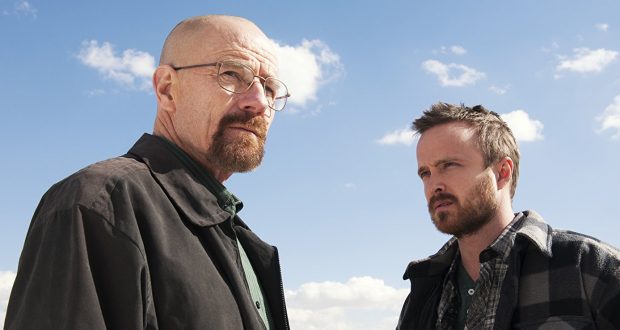

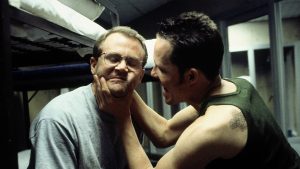
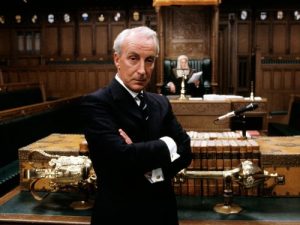
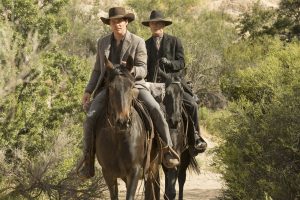
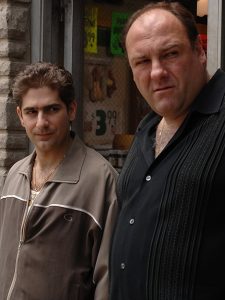

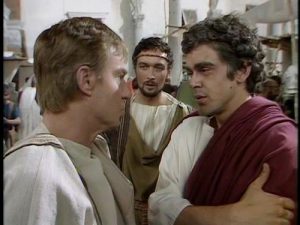


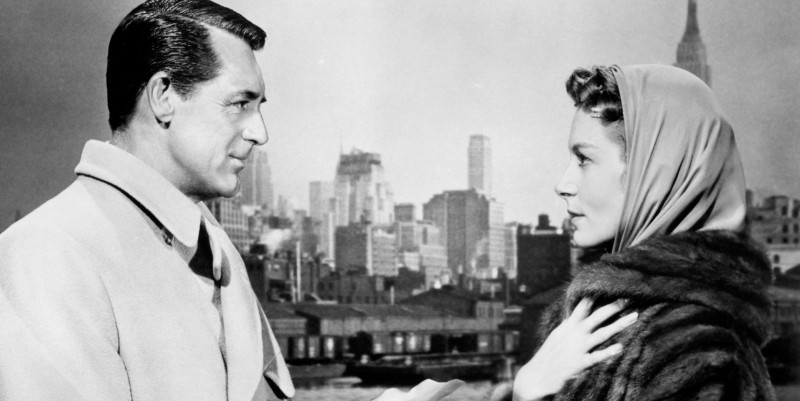



I’d add The West Wing to the list of proto-Modern TV Dramas, just ahead of The Wire and co.